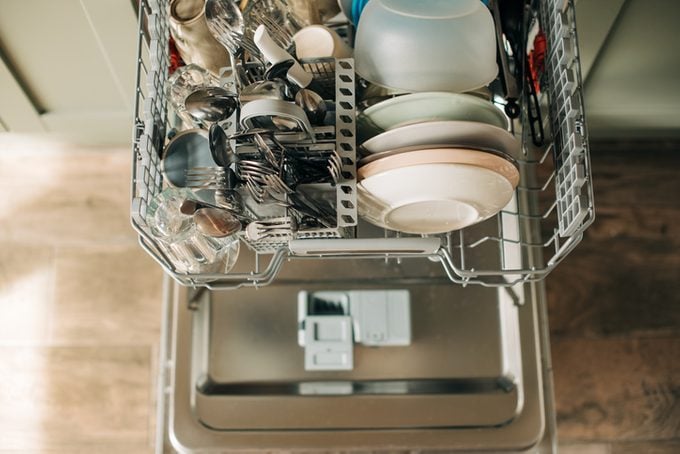Common dishwasher mistakes may be costing you valuable time and money. Here's how to avoid them.

Are You Getting the Most Out of Your Dishwasher?

For as long as dishwashers have existed, people have been arguing about how to best use them.
How frequently should you run a dishwasher? Does it need to be fully loaded before a run? And how do you clean it, anyway?
Rest assured, this article will walk you through everything you need to know to get the most out of your dishwasher, from preparing your dishes for washing to unusual items you can throw in your next load.
How to Get the Most Out of Your Dishwasher
Follow these tips to lower your water bill and lessen the environmental impact of your dishwashing.
Run it only when full (but not too full)
When you start running low on plates, it’s natural to run the dishwasher, even if it’s not fully loaded yet. Dishwashing technology has become so efficient and environmentally friendly that some companies actually recommend running it “whenever you want.”
This, however, is not the full story.
Yes, these modern dishwashers are way more effective than their forebears, and way better than hand-washing dishes. And yes, overcrowding your dishes will reduce the washer’s ability to clean them properly, thereby wasting water and money.
However, running the entire dishwasher for only a few items is still more wasteful than running a properly full load. Try to find a happy medium so it’s pretty full, but water and detergent can still easily reach every item.
Pro Tip: Check here how to install a dishwasher and avoid the most common mistakes while you put them.
Don’t pre-rinse your dishes
Yes, you heard me!
While many users still rinse their dishes — we’ve even recommended a light rinse ourselves — the latest data suggests we should stop.
Modern dishwashers come with food filters, and most detergents contain enzymes that break down food particles. This means, according to former Wirecutter supervising editor Winnie Yang, all you need to do before loading is “scrape as much as you can into the garbage or compost.” After all, running all that sink water to get every speck of food off your dishes will increase your water bill.
Appliance company Duerden’s also encourages the no-rinse approach, recommending Finish dishwasher detergent for the best enzymatic cleaning power.
Load it properly

Contrary to popular belief, there is a right way to load a dishwasher. Make sure cups, glasses, mugs and small bowls are all on the top rack, and plates and larger bowls on the bottom. Everything loaded onto the bottom rack should face inward to ensure that the detergent and water can reach it properly.
Before your next load, check out our in-depth breakdown of dishwasher loading mistakes.
Clean it regularly
Cleaning your dishwasher will help you avoid odors, drainage issues and, of course, dirty dishes. To do so, you can use vinegar and/or dishwasher soap. Don’t forget to pay special attention to your armports, door lip and filter. And always consult your dishwasher’s manual before you clean.
If you run about one load per day, your dishwasher needs to be cleaned “every 30 days,” according to Bree Lemmen, Whirlpool kitchen brand manager, speaking to Today.com.
Adjust the PSI
If you really want to make sure your dishwasher runs as effectively as possible, check the pounds per square inch (psi) of water pressure. According to filtration and appliance company Danamark, most commercial dishwashers only need 20 psi to clean dishes properly.
“If pressure is in excess of 25 psi, then the machine may be using more water than necessary,” the company says.
To check your water pressure correctly, look at the pressure gauge on the inlet water line. If you don’t have one, a professional can install one for you.
Wash more than just dishes
Finally, it’s OK to use your dishwasher to clean other household items. Add in terracotta pots, combs, vent grills, sponges and baby toys. Be sure to check out our full list of gadgets that can be put in the dishwasher.




















